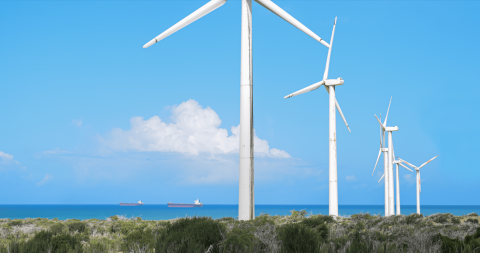
On equal terms: Using the EITI to promote inclusivity in the extractive industries
Four ways the 2023 EITI Standard supports inclusivity in an evolving sector
While there have been concerted efforts to strengthen the participation of women and marginalised groups in the extractive sector, progress is slow. According to the World Economic Forum, achieving gender parity could take 131 years at the current pace – a projection that is likely even longer in the extractive sector. The path to inclusivity is marked by several barriers: lack of training and mentorship opportunities, underrepresentation of women in decision-making roles, and limited access to economic opportunities and funding, to name a few.
In an era where the world is shifting towards greener, more sustainable energy solutions, the demand for minerals such as copper, cobalt and rare earths is skyrocketing. This shift presents both opportunities and challenges, including the potential for increased mining activity and economic growth, but also the risk of corruption and harm to communities, particularly to women.
As countries navigate this transition, it’s imperative that decision-makers prioritise social and environmental responsibility to ensure that no one is left behind. Our latest policy brief outlines four ways stakeholders can use data and dialogue to promote inclusivity in the extractive sector.
1. Supporting inclusive decision-making
An inclusive transition requires gender-responsive policies and programmes that empower women to have a voice in how the sector is managed. Involving women and gender-diverse individuals in decision-making can bring alternative perspectives, priorities and knowledge that inform more inclusive and sustainable policies, especially as countries and companies adapt their strategies to respond to the energy transition.
The EITI Standard supports women's leadership in natural resource governance by requiring multi-stakeholder groups to consider gender balance in their membership. This provision isn't just about representation; it's about amplifying women's voices and expanding perspectives and innovations in natural resource management.
An inclusive transition requires gender-responsive policies and programmes that empower women to have a voice in how the sector is managed.
Furthermore, to support the agency of marginalised groups, EITI countries are expected to disclose information on their consultation processes in awarding and transferring licenses, ensuring all perspectives are considered when approving new projects. A recent project, supported by the Ford Foundation and implemented in four communities in Colombia, Ghana and Indonesia, provides an example of how community engagement can empower women and indigenous groups to participate in debate and dialogue on how the energy transition is affecting their lives.
2. Ensuring equal employment opportunities
A diverse workforce in the mining, oil and gas sector can be a catalyst for productivity and innovation, bringing a rich set of skills and ideas to the table. If managed well, the energy transition can create new employment opportunities for women and gender-diverse people. Yet women are generally underrepresented in the sector, particularly in technical and leadership roles, often due to barriers such as gender stereotypes, occupational segregation and limited access to training.
The EITI Standard requires countries to disclose employment data by company, project, gender and occupational level. Companies are also encouraged to disclose information about their gender pay gap. This data can be used to formulate policies aimed at boosting the participation and equality of women and marginalised groups in the sector. It can also inform strategies on training, health, safety and security.
A diverse workforce in the mining, oil and gas sector can be a catalyst for productivity and innovation, bringing a rich set of skills and ideas to the table.
For example, Colombia’s national oil company, Ecopetrol discloses employment data on workers hired by contractors, broken down by gender and other parameters. It also implemented an employment strategy that aims to help women, local communities and disadvantaged groups access employment opportunities.
3. Disclosing impact assessments
The extractive industries can have significant environmental and social impacts, which can affect citizens differently based on gender and income. To ensure communities can understand these impacts, producers should openly share environment, social and gender impact assessments in accessible formats, while actively engaging communities in devising mitigation measures.
The EITI Standard requires countries and companies to disclose information on the environmental and social impacts of their industries, including assessments, monitoring data and social expenditures. It also encourages companies to disclose social expenditures for programmes supporting women's rights and gender equality. The disclosures can support measures that protect women and marginalised groups from adverse impacts and promote equal access to the sector’s benefits.
4. Promoting transparent revenue collection and allocation
With the increase in demand for transition minerals, countries will also have the opportunity to gain additional revenue opportunities in the form of mining royalties and taxes. If used well, revenue from the extractives industry can play a vital role in promoting sustainable development, mitigating the adverse environmental and social impacts of extractive operations, and ensuring access to public services for women and marginalised groups.
EITI disclosures on contracts, company payments and allocations of government revenues can assist communities in gaining a clearer understanding of the funds they are entitled to receive. Revenue transparency can also support gender-responsive budgeting, allowing communities to monitor whether resources are being allocated to women’s programmes and measure to promote gender equality.
Supporting an inclusive extractive sector
Our policy brief outlines how stakeholders can use data and dialogue to promote a gender-responsive energy transition.
Related content



